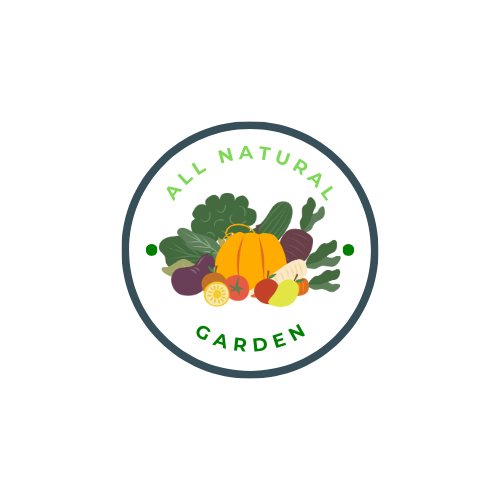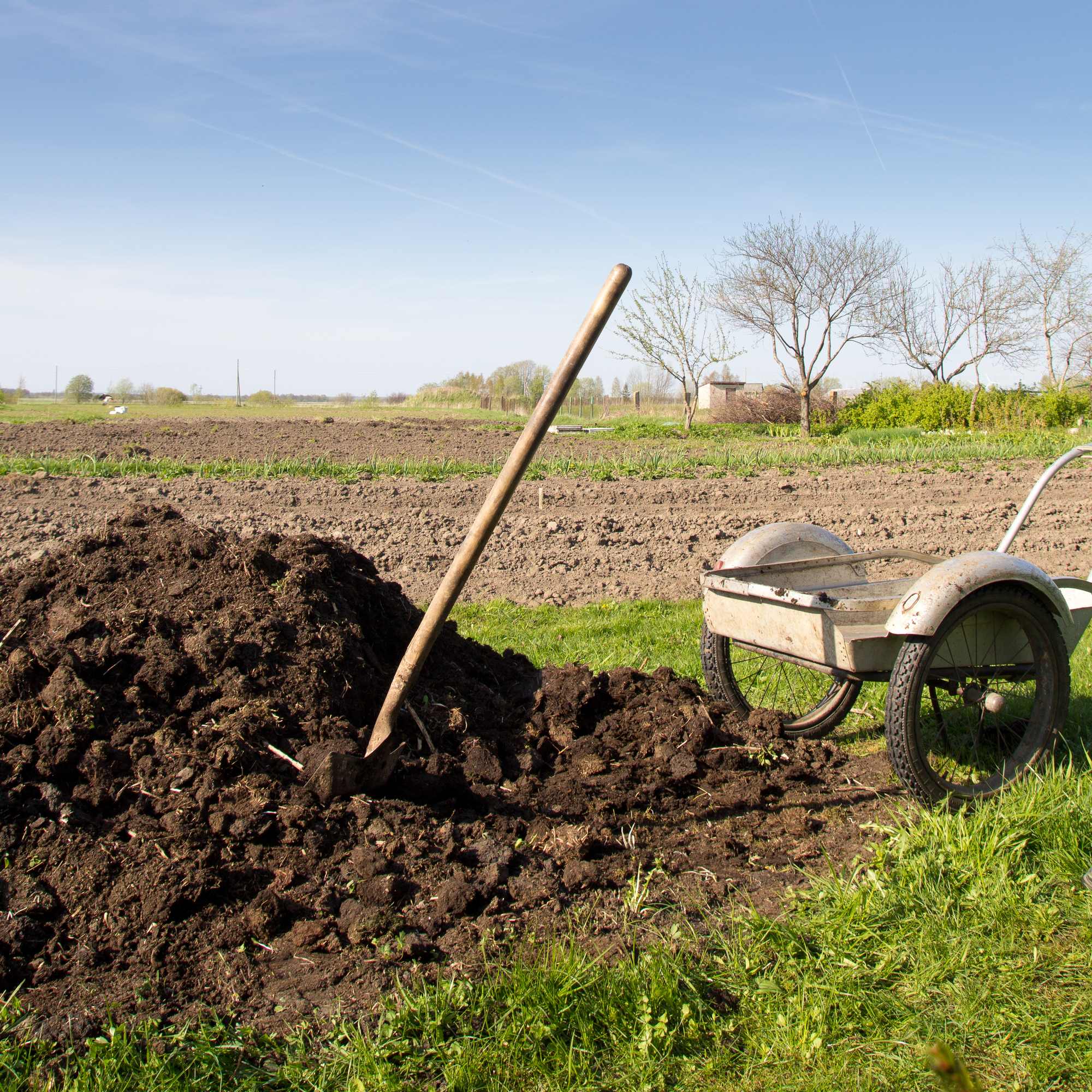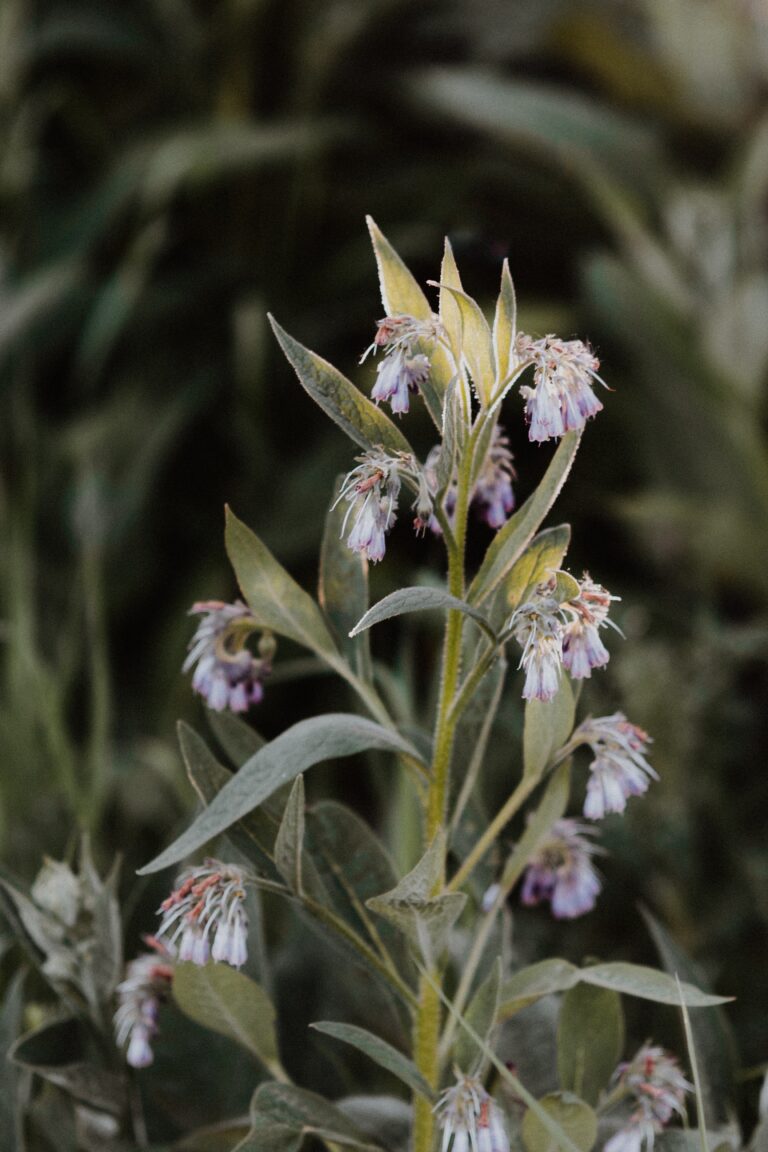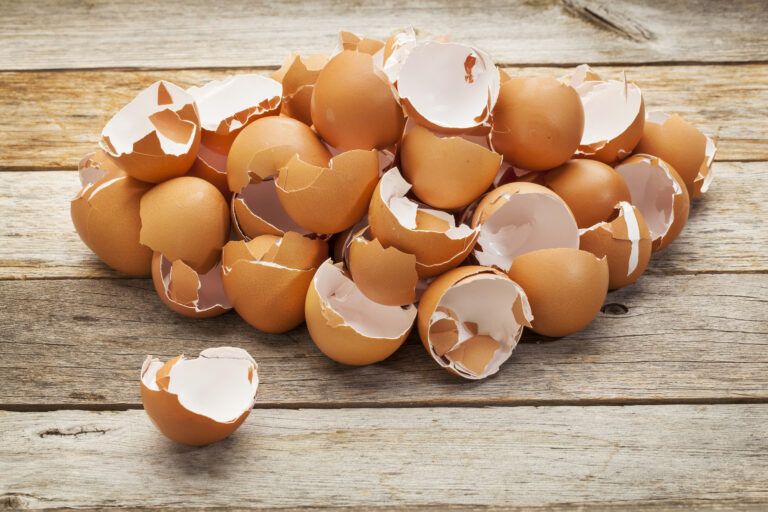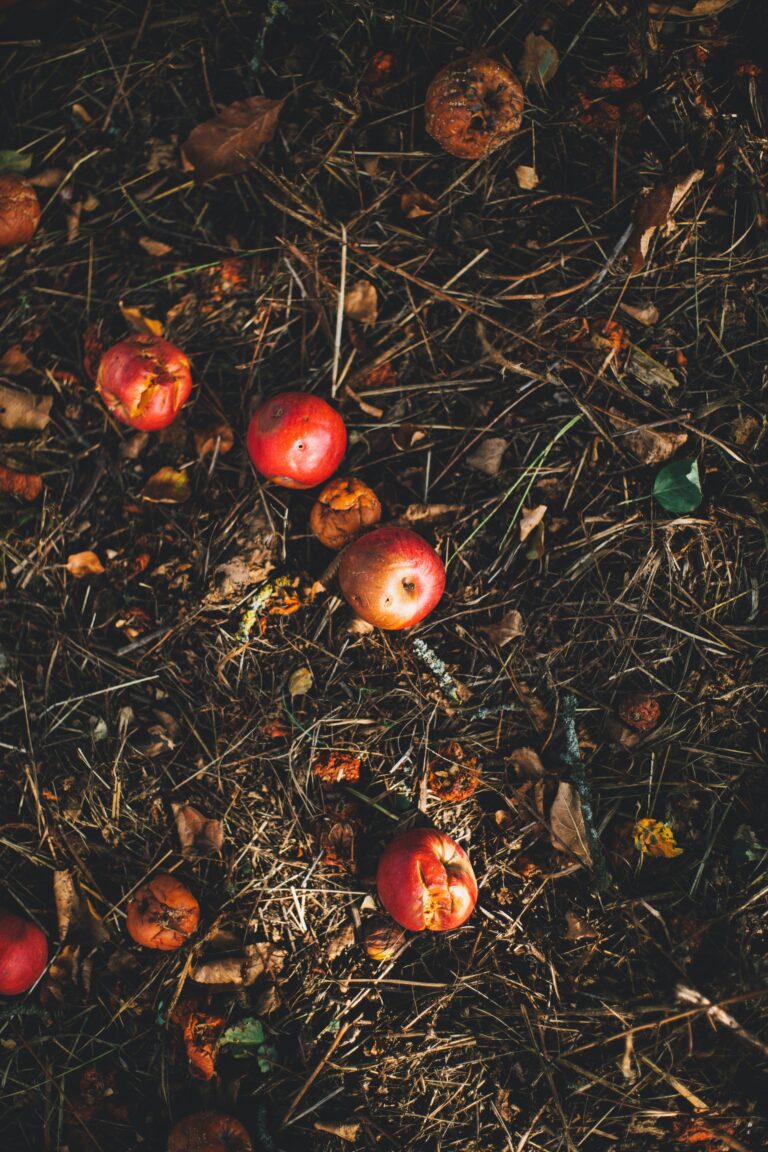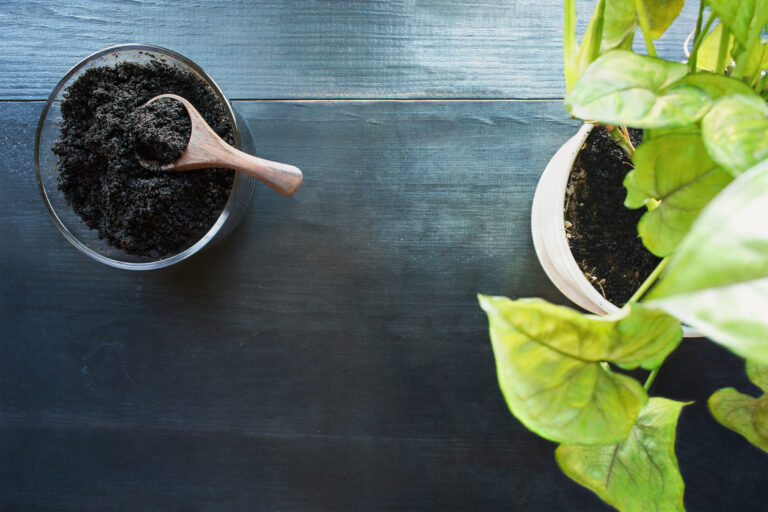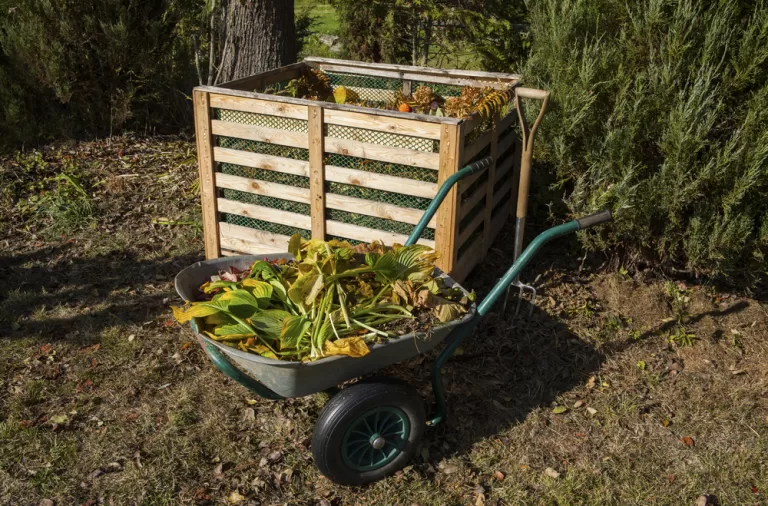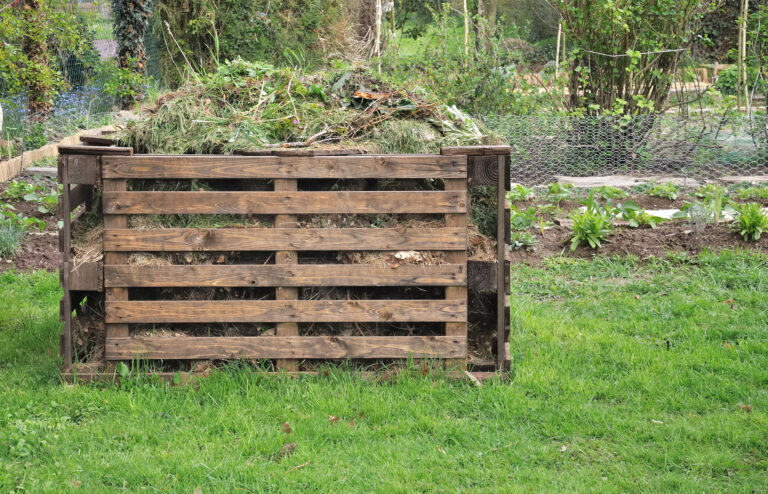The straight poop on organic fertilizer
Plants are like people, they need the right fuel to grow and thrive. I choose not to eat food with artificial dyes and ingredients. And I choose to use only organic fertilizer to feed my vegetable garden! Here are a few reasons why organic fertilizer is your plant’s best friend:
It’s All Natural
Organic fertilizer is made from natural ingredients that are safe for the environment and your plants. Unlike synthetic fertilizers, organic fertilizers do not contain harmful chemicals that can harm your plants or contaminate the soil. Plus, organic fertilizers are sustainable and renewable, making them a great choice for eco-conscious gardeners.
It Builds Strong Roots
Organic fertilizers contain a variety of nutrients that help build strong roots. This is important because strong roots are the foundation of healthy plants. Organic fertilizers also improve soil structure, making it easier for roots to grow and absorb nutrients.
It Improves Soil Health
Organic fertilizers do more than just feed your plants, they also improve soil health. Organic fertilizers contain beneficial microorganisms that promote healthy soil biology. This helps to improve soil structure, increase water retention, and reduce erosion.
It’s Cost Effective
Organic fertilizers may cost a bit more upfront, but they are more cost-effective in the long run. Synthetic fertilizers may provide a quick boost of nutrients, but they do not improve soil health like organic fertilizers do. This means you will need to use more synthetic fertilizers over time to achieve the same results. Organic fertilizers, on the other hand, provide long-lasting benefits that save you time and money in the long run.
The Secret Life of Worms: Vermicomposting
When it comes to organic fertilizer, worms are the unsung heroes of the garden. These slimy little creatures are masters of vermicomposting, a process that turns organic waste into nutrient-rich soil.
Vermicomposting is a simple and effective way to create organic fertilizer. All you need is a bin, some worms, and organic waste like food scraps and yard trimmings. The worms eat the waste and break it down into a nutrient-rich compost that can be used to fertilize plants and improve soil health.
But worms are more than just composting machines. They are also fascinating creatures with a secret life that most people never see. Did you know that worms have five hearts? Or that they breathe through their skin? Or that they can eat their own weight in food every day?
If you’re interested in vermicomposting, there are a few things you should know. First, not all worms are created equal. The best worms for vermicomposting are red wigglers, also known as Eisenia fetida. These worms are voracious eaters and can tolerate a wide range of conditions.
Second, it’s important to keep your worm bin healthy. This means providing the right amount of food, moisture, and ventilation. Too much food can cause the bin to become smelly and attract pests, while too little food can starve the worms. Keeping the bin moist but not too wet is also important, as worms need a moist environment to breathe.
In conclusion, vermicomposting is a fun and easy way to create organic fertilizer while also getting to know the secret life of worms. With a little bit of knowledge and some basic supplies, anyone can become a vermicomposting expert.
Compost Tea: Brew Your Way to a Greener Garden
If you’re looking for a way to give your plants a boost, look no further than your compost bin. Compost tea is a nutrient-rich liquid that’s made by steeping compost in water. It’s easy to make and can be used to fertilize your garden, indoor plants, and even your lawn.
To make compost tea, simply fill a bucket with water and add a few scoops of compost. Let it steep for a few days, stirring occasionally. The resulting liquid will be rich in nutrients and beneficial microorganisms.
One of the benefits of compost tea is that it’s a gentle fertilizer that won’t burn your plants. It’s also a great way to use up excess compost that you may have on hand. Plus, it’s free!
Compost tea can be applied directly to the soil or used as a foliar spray. To use as a foliar spray, strain the liquid through a cheesecloth or fine mesh strainer and pour it into a spray bottle. Spray the leaves of your plants, being sure to cover both the top and bottom of the leaves.
If you’re feeling adventurous, you can even add other ingredients to your compost tea to give it an extra boost. For example, you could add seaweed or fish emulsion for added nutrients. Just be sure to research any additional ingredients you plan on adding to ensure they’re safe for your plants.
Overall, compost tea is a simple and effective way to give your plants the nutrients they need to thrive. So why not give it a try and brew your way to a greener garden?
The Great Poo Debate: Animal Manures
Organic fertilizers are all about using natural resources to boost plant growth. One of the most popular types of organic fertilizers is animal manures. However, there is a great debate on which animal poo is the best.
Some gardeners swear by cow manure, claiming it’s the most balanced fertilizer. Others prefer the high nitrogen content of chicken manure. And let’s not forget about the benefits of goat, sheep, and horse manure.
But what about the smell? Cow manure has a distinct odor, while chicken manure can knock you off your feet. Sheep and goat manure are milder, while horse manure can be quite pungent.
Another factor to consider is the texture. Cow manure is usually the most fibrous, while chicken manure is finer. Sheep and goat manure are somewhere in between, while horse manure can be chunky.
So, which animal poo is the best? The truth is, it depends on your specific needs and preferences. Each type of manure has its own unique benefits and drawbacks.
Here’s a quick breakdown of some of the most common types of animal manures:
| Animal | Nitrogen | Phosphorus | Potassium |
|---|---|---|---|
| Cow | Medium | High | Medium |
| Chicken | High | Medium | High |
| Sheep | Medium | Medium | Medium |
| Goat | Medium | Medium | High |
| Horse | High | Medium | High |
No matter which type of manure you choose, be sure to compost it first to reduce the risk of harmful bacteria. And always wear gloves when handling manure, unless you want to smell like poo for the rest of the day.
Kitchen Scraps: Your Trash, Your Plant’s Treasure
Do you know that your kitchen scraps can be turned into organic fertilizer? Yes, you heard it right! Those banana peels, eggshells, coffee grounds, and vegetable scraps that you usually throw in the trash can be used to create a nutrient-rich fertilizer for your plants.
Not only is it an eco-friendly way to dispose of your kitchen waste, but it also helps to improve the soil quality and promote healthy plant growth. Organic fertilizers made from kitchen scraps are rich in essential nutrients such as nitrogen, phosphorus, and potassium, which are vital for plant growth.
Here are some common kitchen scraps that can be used to make organic fertilizer:
- Fruit and vegetable scraps
- Eggshells
- Coffee grounds
- Tea leaves
- Nutshells
- Crushed bones
- Shredded paper
To make your own organic fertilizer, simply collect your kitchen scraps in a compost bin or pile and let them decompose over time. You can also speed up the process by adding some soil, water, and a compost activator.
Once the compost is ready, you can use it to fertilize your plants. Simply sprinkle the compost around the base of your plants and gently work it into the soil. Your plants will thank you for the nutrients, and you’ll be doing your part to reduce waste and promote sustainability.
So, the next time you’re about to throw away your kitchen scraps, remember that they can be your plant’s treasure. Give them a second life by turning them into organic fertilizer and watch your plants thrive!
Seaweed and Fish Emulsion: The Ocean’s Gift
What do seaweed and fish have in common? They both make great organic fertilizers! Seaweed is packed with essential nutrients, including nitrogen, phosphorus, and potassium. It also contains trace elements like iron, zinc, and magnesium. Fish emulsion, on the other hand, is rich in nitrogen and phosphorus, which are essential for plant growth.
Seaweed and fish emulsion are both great options for organic gardeners who want to give their plants a boost without using synthetic fertilizers. They are easy to use and can be applied directly to the soil or as a foliar spray.
One of the great things about seaweed and fish emulsion is that they can help improve soil structure. Seaweed contains alginic acid, which can help break up clay soils and improve drainage. Fish emulsion, on the other hand, can help improve soil texture by increasing the amount of organic matter in the soil.
Another benefit of using seaweed and fish emulsion is that they can help improve plant health. Seaweed contains compounds that can help plants resist pests and diseases. Fish emulsion, on the other hand, can help improve plant vigor, which can make them less susceptible to pests and diseases.
So next time you’re at the beach, why not collect some seaweed to use in your garden? And if you’re a fisherman, don’t throw away those fish scraps – they could be the key to a healthy, thriving garden!
Green Manures: Cover Crops with Benefits
When it comes to organic gardening, green manures are a must-have. These cover crops can do wonders for your soil, and they’re easy to grow. Green manures are crops that are grown specifically to be turned into the soil, where they break down and add nutrients. Here are some of the benefits of using green manures in your garden:
Improved Soil Structure
Green manures can help improve soil structure by increasing the amount of organic matter in the soil. This, in turn, can help the soil retain moisture and nutrients, and make it easier for roots to grow.
Nutrient-Rich Soil
Green manures are an excellent source of nutrients for your plants. As they break down, they release nitrogen, phosphorus, and other essential nutrients into the soil. This can help improve the overall health of your plants and increase their yield.
Weed Suppression
Green manures can also help suppress weeds. When you plant a cover crop, it shades the soil and prevents sunlight from reaching weed seeds. Additionally, some green manures, like buckwheat, have allelopathic properties, which means they release chemicals that inhibit the growth of other plants.
Pest Control
Certain green manures, like marigolds, can help control pests. Marigolds release chemicals that repel nematodes, which are tiny worms that can damage plant roots.
In conclusion, green manures are a valuable tool for any organic gardener. They can improve soil structure, provide nutrients, suppress weeds, and even control pests. So, next time you’re planning your garden, consider planting a cover crop. Your soil (and your plants) will thank you!
Decoding the N-P-K Ratio
When it comes to organic fertilizers, the N-P-K ratio is an important factor to consider. But what does it mean? And how do you decode it?
First, let’s break down the letters. N stands for nitrogen, P stands for phosphorus, and K stands for potassium. These are three essential nutrients that plants need to grow and thrive.
The N-P-K ratio is a way of expressing the relative amounts of these three nutrients in a fertilizer. For example, a fertilizer with an N-P-K ratio of 5-10-5 would contain 5% nitrogen, 10% phosphorus, and 5% potassium.
But what do these numbers actually mean? Well, nitrogen is important for leafy growth, phosphorus is important for root development and flower production, and potassium is important for overall plant health and disease resistance.
So, when choosing an organic fertilizer, it’s important to consider what your plants need. If you’re growing leafy greens, a fertilizer with a higher nitrogen ratio would be beneficial. If you’re growing flowers or fruit, a higher phosphorus ratio would be more helpful.
It’s also worth noting that different plants have different nutrient requirements. So, while a general-purpose fertilizer with an N-P-K ratio of 5-10-5 might work well for some plants, others may need a more specific ratio.
In conclusion, decoding the N-P-K ratio of an organic fertilizer is an important step in choosing the right fertilizer for your plants. By understanding what the numbers mean and what your plants need, you can ensure that your plants get the nutrients they need to grow and thrive.
The Dark Side: Risks and Mitigation of Organic Fertilizers
Organic fertilizers are often touted as the eco-friendly and sustainable alternative to chemical fertilizers. However, like any other product, there are risks associated with their use. Here are some of the potential risks and how to mitigate them:
Risk 1: Contamination
Organic fertilizers are made from animal manure, compost, and other organic materials. If not properly treated, these materials can contain harmful pathogens and bacteria, such as E. coli and Salmonella. These pathogens can contaminate crops and cause foodborne illnesses in humans.
Mitigation: Proper composting and storage of organic fertilizers can help reduce the risk of contamination. Composting at high temperatures (above 131°F) for at least three days can kill most pathogens. Additionally, farmers should follow good hygiene practices, such as washing hands and using protective gear, when handling organic fertilizers.
Risk 2: Inconsistent Nutrient Levels
Organic fertilizers can have varying nutrient levels depending on the source and processing method. This can make it difficult for farmers to accurately apply the right amount of fertilizer to their crops.
Mitigation: Farmers can test their soil and organic fertilizer to determine the nutrient levels and adjust their application rates accordingly. They can also use organic fertilizers in combination with chemical fertilizers to ensure consistent nutrient levels.
Risk 3: Slow Release of Nutrients
Organic fertilizers release nutrients slowly over time, which can be beneficial for long-term soil health. However, this slow release can also mean that crops may not receive enough nutrients during the early stages of growth.
Mitigation: Farmers can use a combination of organic and chemical fertilizers to provide immediate and long-term nutrient availability to their crops. They can also apply organic fertilizers in the fall or winter to allow time for the nutrients to break down before planting in the spring.
In conclusion, while organic fertilizers have many benefits, there are also potential risks associated with their use. By following proper composting and storage practices, testing nutrient levels, and using a combination of fertilizers, farmers can mitigate these risks and reap the benefits of organic farming.
Choosing the Right Organic Fertilizer for Your Garden
When it comes to choosing the right organic fertilizer for your garden, there are a few things to consider. First, think about what type of plants you will be growing. Different plants have different nutrient needs, so it’s important to choose a fertilizer that will provide the right balance of nutrients.
Next, consider the source of the organic fertilizer. Some fertilizers are made from animal waste, while others are made from plant-based materials. If you’re a vegetarian, you may want to opt for a plant-based fertilizer to keep things cruelty-free.
It’s also important to consider the nutrient content of the fertilizer. Look for a fertilizer that has a balanced ratio of nitrogen, phosphorus, and potassium (N-P-K). This will ensure that your plants get the nutrients they need to grow strong and healthy.
Finally, consider the form of the fertilizer. Some fertilizers come in liquid form, while others come in granular form. Liquid fertilizers are great for quick absorption, while granular fertilizers provide slow-release nutrients over time.
Remember, choosing the right organic fertilizer is key to a successful garden. So take your time, do your research, and don’t be afraid to ask for help from a gardening expert. Happy planting!
Conclusion: The Future of Organic Fertilizing
As society becomes more environmentally conscious, the use of organic fertilizers is gaining popularity. The benefits of using organic fertilizers are clear: they are eco-friendly, sustainable, and promote healthy soil and plants.
In the future, the use of organic fertilizers is expected to continue to grow. As more people become aware of the negative effects of chemical fertilizers on the environment and human health, the demand for organic alternatives will increase.
One exciting development in the world of organic fertilizing is the use of compost tea. Compost tea is a liquid fertilizer made by steeping compost in water. It contains a wide variety of beneficial microorganisms that can help improve soil health and plant growth.
Another trend in organic fertilizing is the use of biochar. Biochar is a type of charcoal that is made by burning organic material in a low-oxygen environment. It can be added to soil to improve its fertility and water-holding capacity.
Overall, the future of organic fertilizing looks bright. As people become more aware of the benefits of using organic fertilizers, the demand for these products will continue to increase. With new innovations like compost tea and biochar, organic fertilizing is sure to play an important role in sustainable agriculture for years to come.
